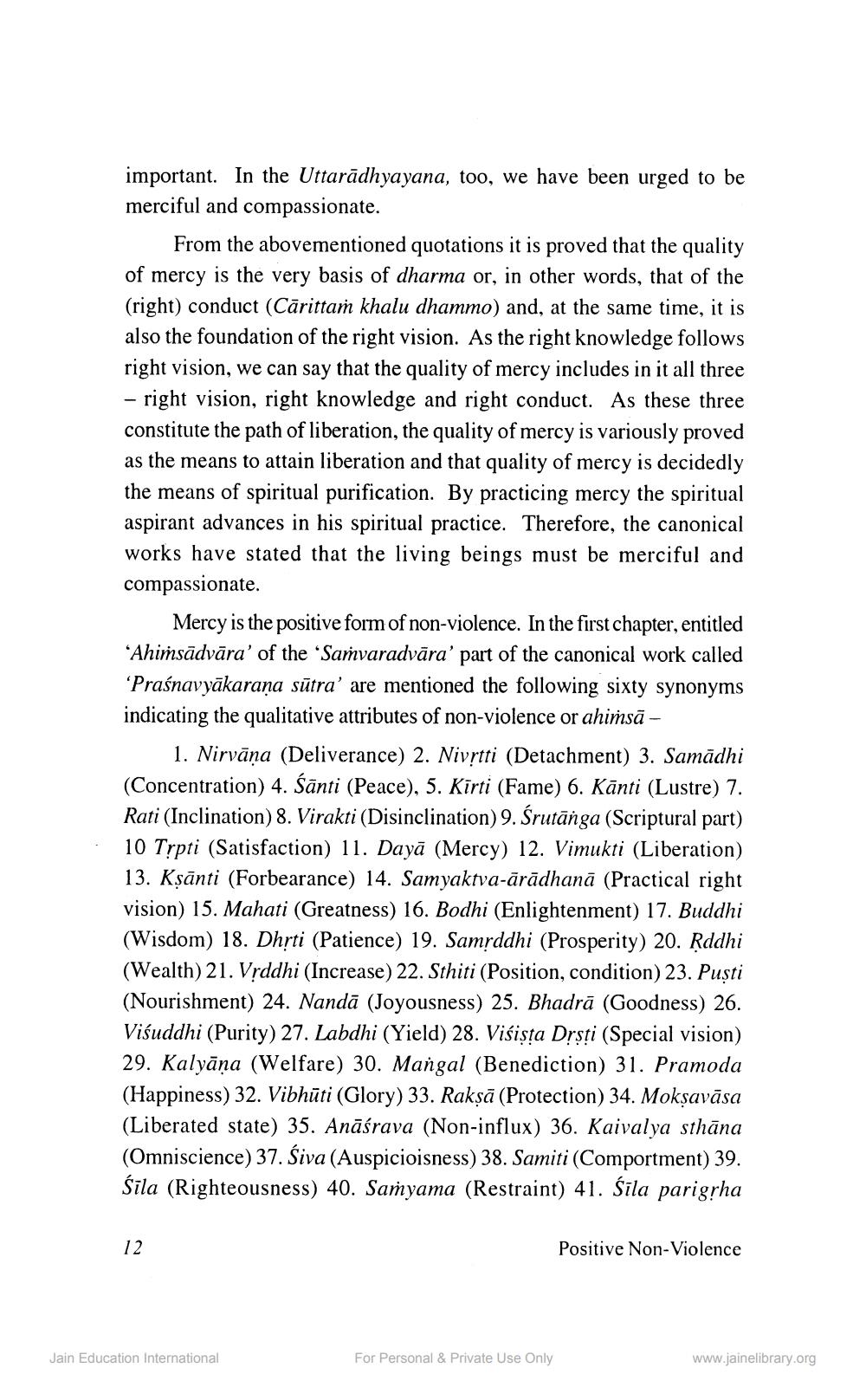________________
important. In the Uttaradhyayana, too, we have been urged to be merciful and compassionate.
From the abovementioned quotations it is proved that the quality of mercy is the very basis of dharma or, in other words, that of the (right) conduct (Cărittam khalu dhammo) and, at the same time, it is also the foundation of the right vision. As the right knowledge follows right vision, we can say that the quality of mercy includes in it all three - right vision, right knowledge and right conduct. As these three constitute the path of liberation, the quality of mercy is variously proved as the means to attain liberation and that quality of mercy is decidedly the means of spiritual purification. By practicing mercy the spiritual aspirant advances in his spiritual practice. Therefore, the canonical works have stated that the living beings must be merciful and compassionate.
Mercy is the positive form of non-violence. In the first chapter, entitled 'Ahimsādvāra' of the 'Samvaradvara' part of the canonical work called 'Praśnavyākaraṇa sūtra' are mentioned the following sixty synonyms indicating the qualitative attributes of non-violence or ahimsa
1. Nirvāņa (Deliverance) 2. Nivṛtti (Detachment) 3. Samadhi (Concentration) 4. Śānti (Peace), 5. Kīrti (Fame) 6. Kānti (Lustre) 7. Rati (Inclination) 8. Virakti (Disinclination) 9. Śrutanga (Scriptural part) 10 Trpti (Satisfaction) 11. Daya (Mercy) 12. Vimukti (Liberation) 13. Kṣānti (Forbearance) 14. Samyaktva-ārādhanā (Practical right vision) 15. Mahati (Greatness) 16. Bodhi (Enlightenment) 17. Buddhi (Wisdom) 18. Dhṛti (Patience) 19. Samṛddhi (Prosperity) 20. Ṛddhi (Wealth) 21. Vṛddhi (Increase) 22. Sthiti (Position, condition) 23. Pusti (Nourishment) 24. Nandā (Joyousness) 25. Bhadra (Goodness) 26. Viśuddhi (Purity) 27. Labdhi (Yield) 28. Visista Drști (Special vision) 29. Kalyāṇa (Welfare) 30. Mangal (Benediction) 31. Pramoda (Happiness) 32. Vibhuti (Glory) 33. Rakṣā (Protection) 34. Mokṣavāsa (Liberated state) 35. Anāśrava (Non-influx) 36. Kaivalya sthāna (Omniscience) 37. Śiva (Auspicioisness) 38. Samiti (Comportment) 39. Śila (Righteousness) 40. Samyama (Restraint) 41. Śīla parigṛha
12
Jain Education International
For Personal & Private Use Only
Positive Non-Violence
www.jainelibrary.org




